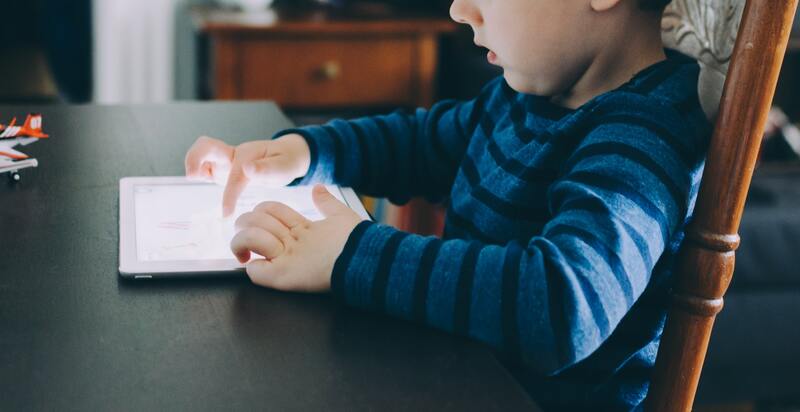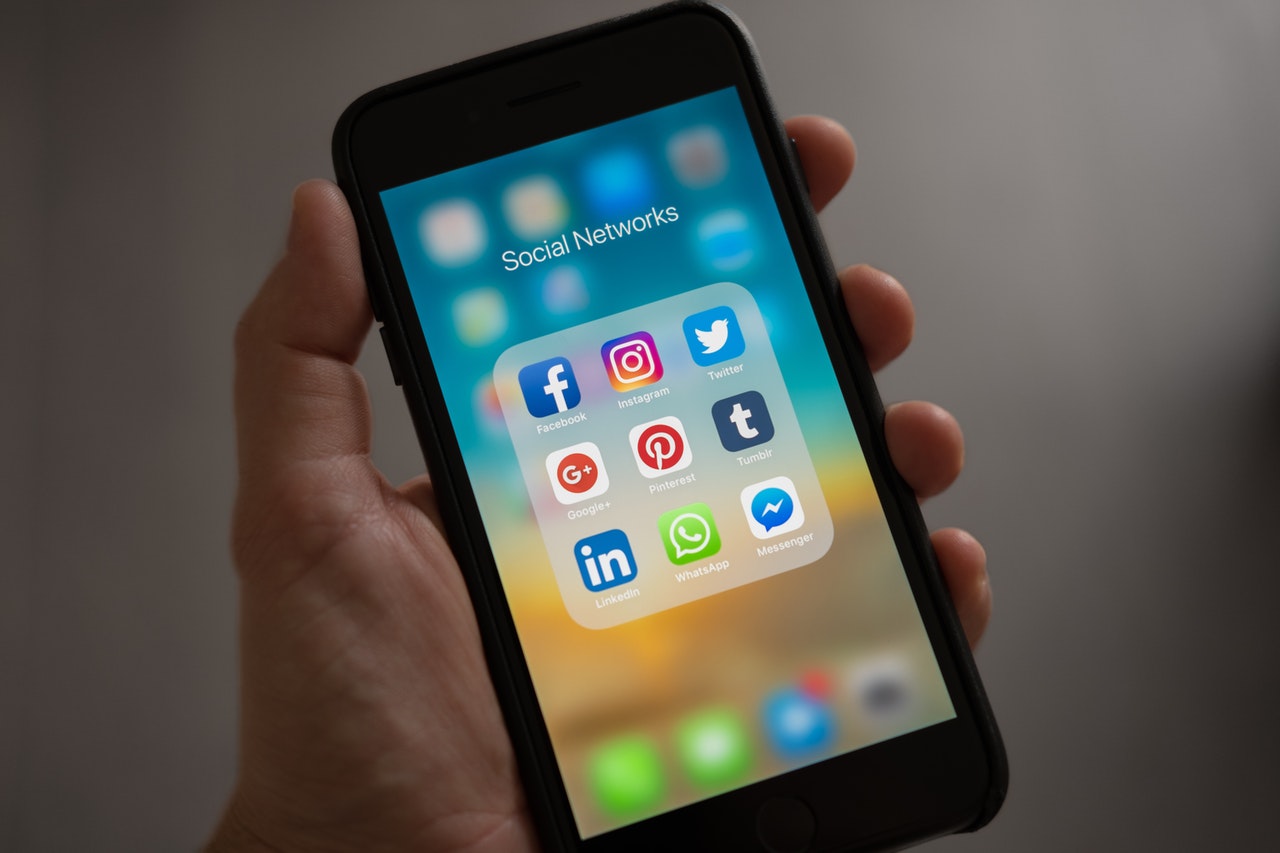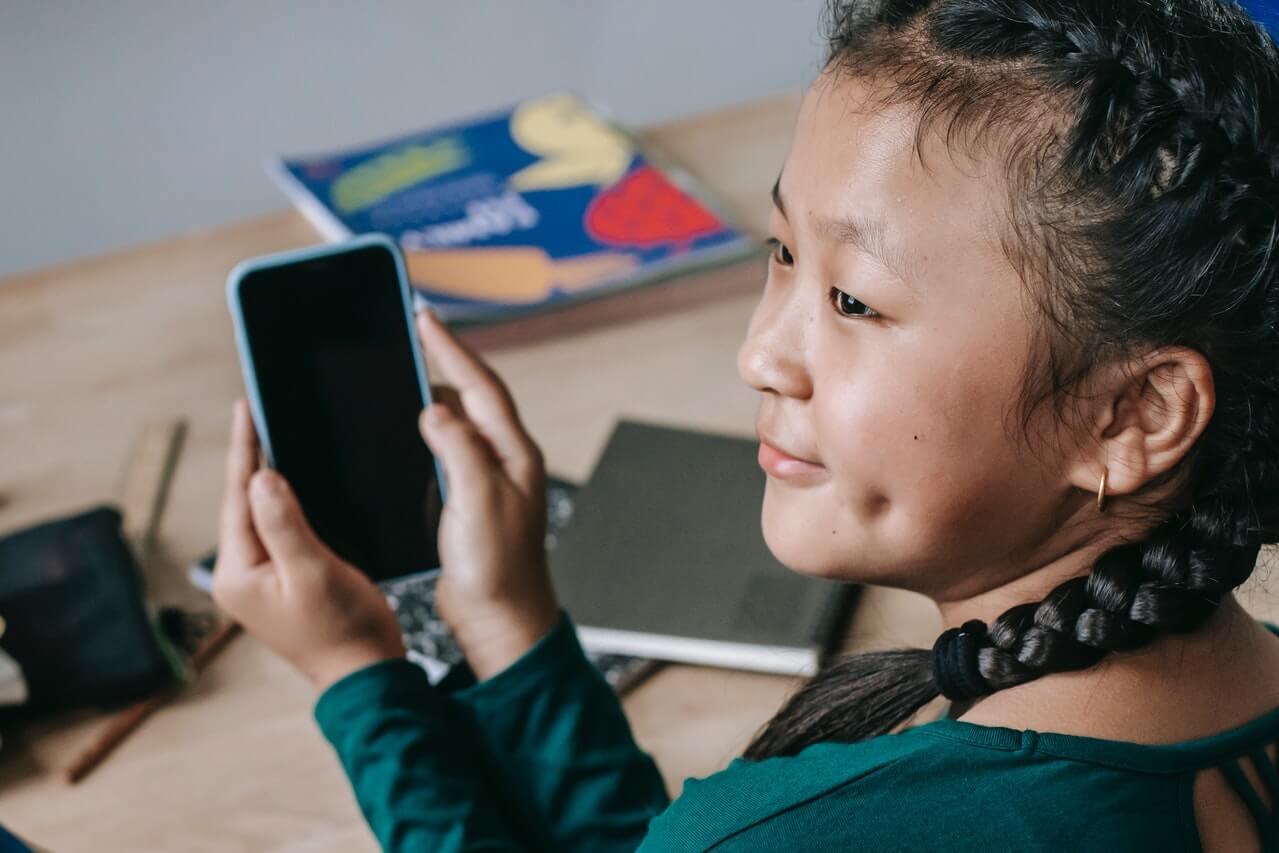The usage of smartphones among kids has been increasing significantly after the COVID-19 pandemic hit, resulting in severe internet addiction. According to a survey, around 35.6% of kids use their phones for one or two hours daily. Sometimes this amount of time spent exceeds upto 4 hours a day. Another study shows, that 23.80% of kids use their phones before bedtime, and 37.15% of them use smartphones frequently throughout the day. As a result, kids experience a lack of concentration, focus, and attention span, which eventually negatively affects their academic performance.
Does it mean as parents you should keep your kids deprived of using smartphones? Ofcourse not. But why exactly should kids have phones? There are plenty of benefits kids can get by using smartphones moderately. To keep things under control, you need to check their phone usage.
Let’s have a look at the basic reasons for which your kids need a phone.
Why Should Kids Have A Phone
1. For Emergency

Kids should have a phone for emergencies because if something happens and they need help, they can call for help. Also, if they are ever in danger or lost, they can use their phone to contact their parents. Having a phone gives kids a sense of independence and responsibility. They have to learn how to use it properly and take care of it, which can be a valuable lesson.
2. To Acquire New Skills
For kids, phones can be a valuable tool for learning new skills. For example, many apps and games can help kids practice their reading and math skills. And with the popularity of video-sharing sites like YouTube, kids can also use their phones to access a wealth of educational videos on everything from science and history to art and music. So if you’re looking for a way to help your child expand their horizons, giving them a phone is a great place to start.
3. To Create Memories through Photos

With a camera built into every phone, it’s easy for kids to snap a photo of anything and everything they see. And with apps like Instagram, they can share those photos with friends and family. What’s more, taking photos can help kids slow down and appreciate the world around them. So next time your kid points their phone at something, encourage them to take a photo. It just might help them create a lasting memory.
4. Increase Productivity
With all the apps and features available on a smartphone, kids can get work done quickly and efficiently. For instance, there are tons of note-taking apps that make it easy to jot down ideas and thoughts. There are also plenty of apps that help with organization and time management. This means that kids can get their work done faster and with less hassle. In addition, phones provide constant internet access, which is a valuable resource for research and information gathering.
5. For Online Classes

Most learning management systems (like Google Classroom or Canvas) have phone apps that help students easily check online class announcements, submit assignments, and participate in discussions right from their phones. There are also a ton of apps and websites that can help with specific subjects. Some great apps, like Evernote or Trello, can help students keep track of assignments, due dates, and upcoming tests. So even though the online school might be a pain, at least kids have got their smartphones to help them out!
YOU MAY ALSO LIKE: 9 TIPS FOR DIGITAL LEARNING
6.To stay connected with them
A phone can help you stay connected with your kids when they are not around or during your busy work schedules. You can use it to stay in touch with them during the day, track their whereabouts, and even monitor their online activity. Plus, if you ever need to get in touch with them in an emergency, a phone will be a lifesaver.
Screen Time Recommendations by Age

The amount of appropriate screen time for children will depend on their age, maturity level, and needs. However, the American Academy of Pediatrics offers the following general guidelines:
- Children under 18 months should avoid screen time.
- For children aged 18 to 24 months, limited screen time (such as watching a short video) can be introduced if it is educational and parents are present to help guide the experience.
- For children aged 2 to 5 years, screen time should be restricted to no more than 1 hour per day.
- Children aged 6 years and older should get screen time limited to no more than 2 hours per day.
In the end, it is up to parents to decide what is best for their children based on their individual needs and circumstances.
How To Ensure Mobile Phone Safety for Kids?
To ensure mobile phone safety for your child, there are a few things you can do:
- Consider using parental control software to monitor and limit your child’s phone usage.
- Set up restrictions on the types of apps and websites that your child can access. Finally
- Have regular conversations with your child about responsible phone use.
By taking these steps, you can help ensure that your child stays safe while using a mobile phone.
Frequently Asked Questions (FAQs)
There is no definitive answer to this question since it varies depending on a child’s family dynamic and financial situation. However, according to a study conducted by Ofcom in the UK, around 63% of children aged 3-17 have their own mobile phones.
It depends on the child’s age, maturity, and individual needs.
The best way to regulate kids’ use of mobile phones will vary depending on the child’s age, personality, and level of responsibility. You can set rules and limits regarding when and how long kids can use their phones. Use parental controls to limit which apps and websites kids can access on their phones. Talk to your kids about the dangers of too much screen time, including how it can impact their health and academic performance.
The bottom line,
Although it may be difficult to restrict your child’s access to technology, it’s important to do so in order to protect them from the harmful effects of too much screen time. Talk with your child about why you’re setting these restrictions and work together to find a balance that works. Don’t hesitate to give your kids phones. Just stay connected with them. It’s the best way to keep them safe and sound when you are not around.




